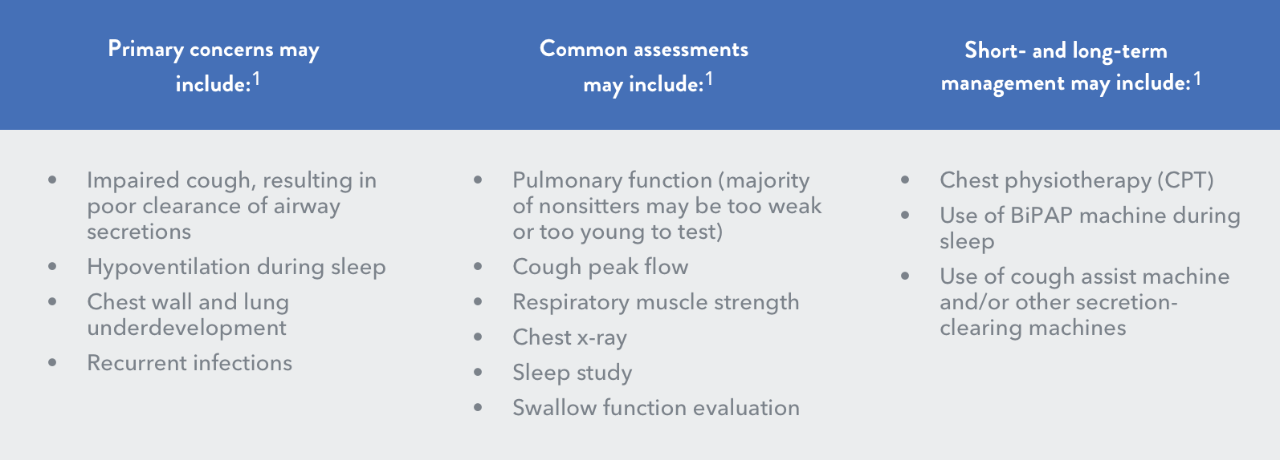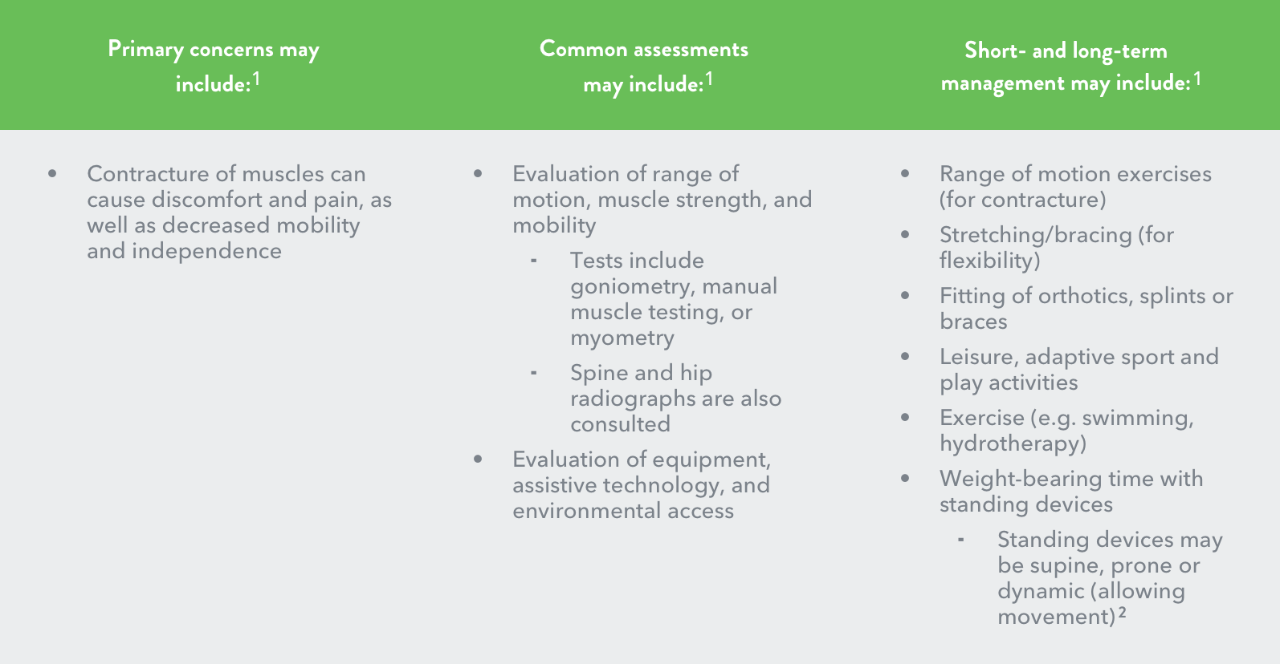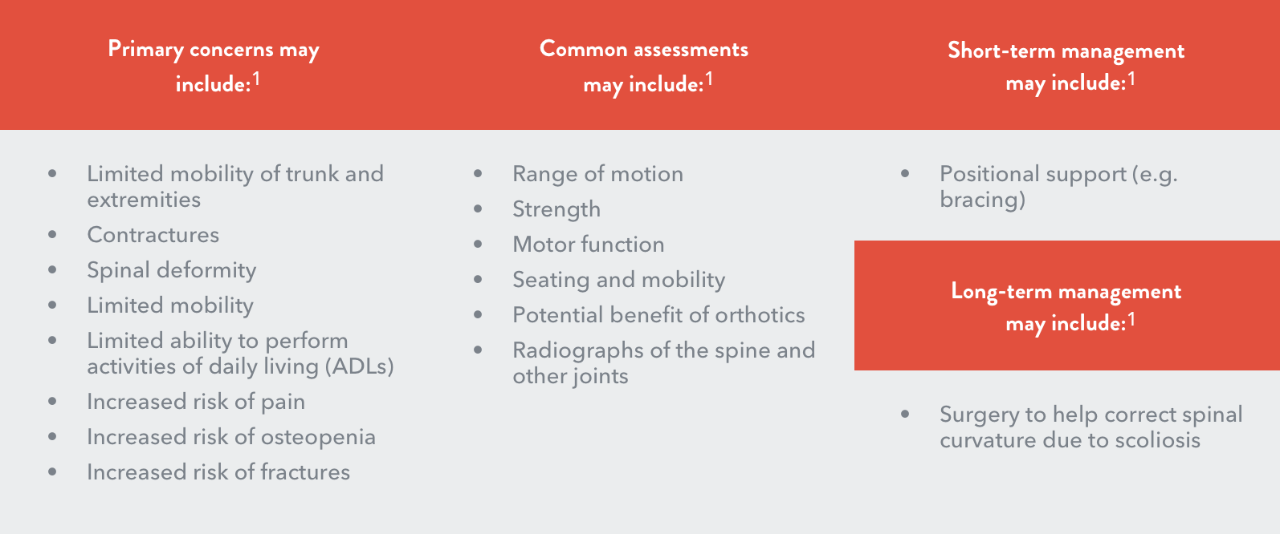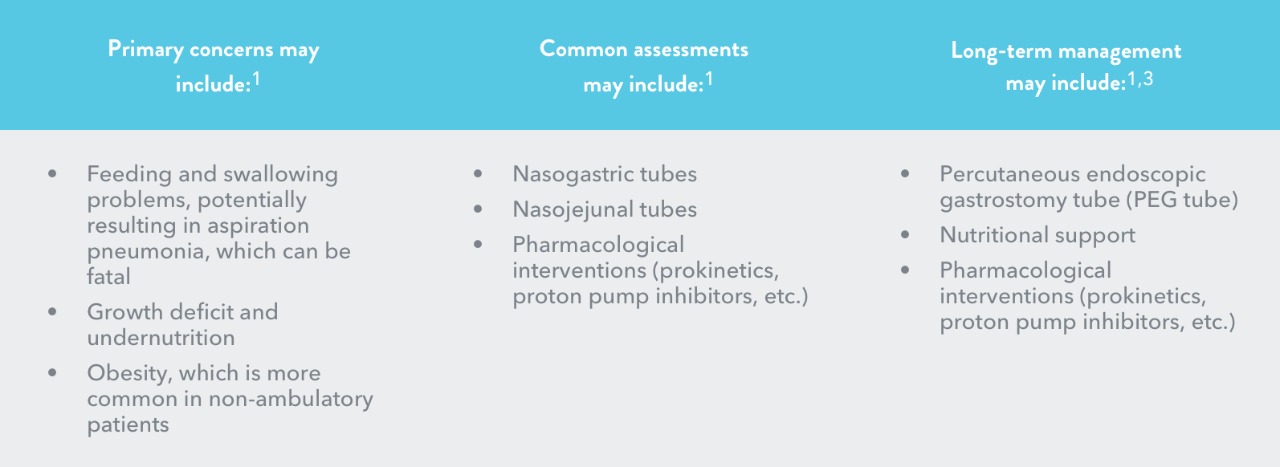


-
Argentina (Español)

-
Australia (English)

-
Bahrain (English)

-
Chile (Español)

-
Deutschland (Deutsch)

-
Europe (English)

-
France (Français)

-
Greece (Ελληνικά)

-
Italia (Italiano)

-
日本 (日本語)

-
대한민국 (한국어)

-
Kuwait (English)

-
Oman (English)

-
Polska (Polskie)

-
Qatar (English)

-
Saudi Arabia (English)

-
Spain (Español)

-
Sverige (Svenska)

-
台灣 (中文)

-
United States (English)

-
UAE (English)

SMA care team
In SMA, a multidisciplinary approach is essential to
coordinate the different aspects of care.
Clinical specialties involved in an SMA care team
Neurologist or paediatric neurologist
Neurologists are often the first specialists to meet with individuals who have SMA.1


Respiratory physician
Respiratory physicians work closely with children with SMA who may have decreased respiratory function, underdeveloped lungs, and difficulty clearing secretions.1


Physiotherapist
Physiotherapists may recommend exercise and/or the use of orthotics and other rehabilitative equipment. These decisions may be based on the age of the individual with SMA, neuromuscular involvement, and developmental stage.2


Orthopaedic specialist and/or surgeon
Muscular weakness often leads to orthopaedic issues in individuals with SMA, resulting in skeletal misalignment and difficulty with movement, which may require intervention by an orthopaedist.1


Dietitian
Individuals with SMA may have difficulty eating due to weak swallowing muscles and poor head control, putting them at risk of aspiration and/or poor nutrition. These issues may require the guidance of a dietitian with experience in SMA.3


A dietitian may consult with other healthcare providers (e.g. gastroenterologists, surgeons, speech therapists) about short- and long-term management of feeding and pharmacological issues.
Parent/Caregiver
Parents/caregivers of people with SMA generally become experts in their child’s care, and are often active contributors to the decision-making process in the multidisciplinary care team.
- Parents develop a high level of knowledge about the disease and progress of their individual child
- They frequently use the internet and social media for both medical and social support
- They deliver the majority of healthcare interventions their children receive on a day-to-day basis, including respiratory support, cough assistance, and nutrition/feeding
- Parents are often the key drivers of the interventions their children will or will not receive
The information above is based on opinions and experiences compiled from parents and caregivers of children with SMA and should not be relied on as an alternative to medical advice from a healthcare professional.
- Wang CH et al. J Child Neurol 2007; 22: 1027–49.
- Spinal Muscular Atrophy Clinical Research Center. Physical/occupational therapy. Available at: http://columbiasma.org/pt-ot.html. Accessed November 2017.
- Cure SMA. Tube feeding and SMA: recommendations and practices. Available at: https://www.curesma.org/wp-content/uploads/2019/07/tube-feeding-conf-2018.pdf. Accessed April 2020.
